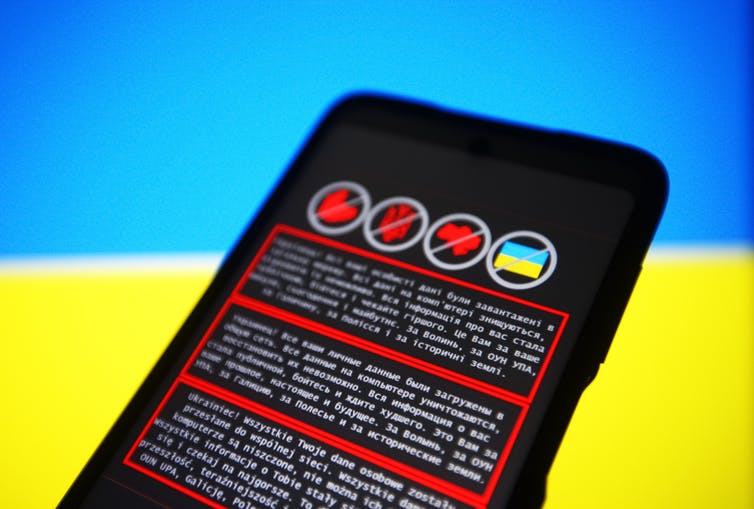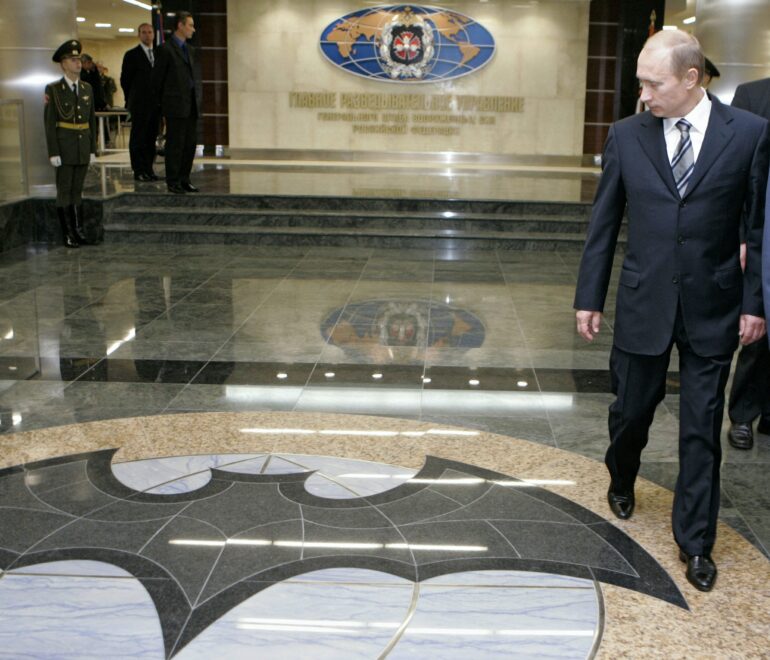The build up of Russian forces along Belarus’ 665-mile border with Ukraine is a physical manifestation of Russia’s intense interest in the region. Russia annexed Crimea in 2014, and now Russian President Valdimir Putin appears intent on pulling Ukraine under Russia’s influence and denying it a close relationship with the West.
But even as Russia engages in brinksmanship from snow-covered fields in Belarus to meeting rooms in Geneva, Moscow is already at war with Kyiv – cyberwar. Russia has been waging this fight since at least 2014.
In cyberspace, Russia has interfered in Ukrainian elections, targeted its power grid, defaced its government websites and spread disinformation. Strategically, Russian cyber operations are designed to undermine the Ukrainian government and private sector organizations. Tactically, the operations aim to influence, scare and subdue the population. They are also harbingers of invasion.
As a cybersecurity and public policy researcher, I believe that Russian cyber operations are likely to continue. These operations are likely to further destabilize Ukraine’s political environment – namely, its government, its institutions and the people and organizations that depend on them.
National power in cyberspace
To date, Russia has been aggressive in its attempts to undermine Ukrainian sovereignty. Russian propaganda has painted a war with Ukraine as one of liberation. Many false narratives paint the Ukrainians as submissive and eager for reunification. Russia’s intent is to sow confusion, shape the public perception of the conflict and influence the ethnic Russian population within Ukraine.

On Jan. 14, 2022, hackers that the Ukrainian government identified as Russian took over Ukrainian government websites and posted threatening messages.
Photo Illustration by Pavlo Gonchar/SOPA Images/LightRocket via Getty Images
Russia has artfully employed cyber operations to project national power, particularly through its GRU military intelligence service. The phrase “instruments of national power” defines power as diplomatic, information, military and economic – all are mechanisms for influencing other countries or international organizations. Cyberspace is unique as a domain of warfare because cyber operations can be used in the service of all four instruments of national power.
Diplomatically, Russia has tried to shape international norms in cyberspace by influencing discussions on cyberspace norms and behaviors. In 2018, Russia introduced a resolution to the United Nations creating a working group with like-minded states to revisit and reinterpret the U.N.‘s rule for cyberspace, emphasizing that a state’s sovereignty should extend into cyberspace. Some analysts argue that Russia’s true goal is to legitimize its surveillance-state internet tactics in the guise of state sovereignty.
Economically, the Russian “NotPetya” attack crippled international…



